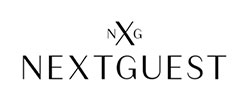Newest Must-Read hebs Whitepaper: The Smart Hotelier’s Guide to 2018 Digital Marketing & Technology Budget Planning
Must-Read Whitepaper Available: The Smart Hotelier’s Guide to 2018 Digital Marketing & Technology Budget Planning


Budgeting season: the time to analyze what initiatives are driving performance, review trends in the industry that should be taken into account when constructing your budget, and start thinking about any major upgrades your property needs to take in its digital technology and marketing strategy.
The Smart Hotelier's Guide to 2018 Digital Marketing & Technology Budget Planning whitepaper is created every year to guide hoteliers on the budgeting process by outlining the tools needed to engage, acquire, and covert travel consumers, as well as enhance the on-property guest experience, and inspire guests to book a future stay.
Here is a sneak peek of what's included in the whitepaper:
- Key Industry Factors & Trends to Consider in 2018: an overview of factors that should be considered when finalizing your budget such as the state of the industry, the need to resolve the fragmentation of data and digital marketing strategies, the complexity of the travel planning journey, changes in the Google advertising ecosystem, Airbnb, and more.
- Action Plan for Creating Your 2018 Budget: HEBS Digital recommends that 3-6% of total room revenue go to the Sales & Marketing line item of the hotel budget. The actual percentage depends on the location of the property, complexity of the business, and ADR. This section also includes recommendations on how to organize the digital technology and marketing part of the overall budget.
- Breaking Down the Budget: this section takes a deep dive into each digital technology and marketing budget initiative, with updates on the latest developments in each as well as recommendations on what to focus on for 2018.
- Your 2018 Budget Snapshot: see a breakdown of each line item in the budget and recommendations on what percentage of the budget to allocate for each.
The 2018 digital marketing & technology budget should not be looked at as just another expense for the property. This is a direct distribution cost vs. hotel expense, as well as an OTA commission-reducing investment. In this sense, the digital marketing budget provides a dual benefit: it increases direct bookings at the lowest possible distribution cost and it reduces expensive bookings made through the OTAs.
With industry forecasts flattening and even decreasing occupancy, and supply outweighing demand in many major markets, the only cost driver hoteliers have any control over is distribution costs. Therefore, increasing direct bookings and lowering acquisition costs is vital to the health of any hotel. A very achievable goal for 2018 should be increasing direct bookings by 15%-25%.
Success for hoteliers in 2018 will be based on how much acquisition costs can be lowered and how well they know their guests, along with what actions are taken with that knowledge. Download The Smart Hotelier's Guide to 2018 Digital Marketing B& Technology Budget Planning for your roadmap on how to achieve your property's revenue goals starting now and into 2018.
ABOUT NEXTGUEST
NextGuest provides hoteliers with everything they need to thrive in the digital world, with bespoke technology solutions developed to meet the needs of luxury hotel clients coupled with elegant design capabilities that bring brands to life. We marry the power of data with brand discovery to uncover unique strategies that apply to everything from website design, content marketing, CRM, and more, helping the world's top hotel brands maximize ROI as they acquire, convert, and retain guests throughout the travel planning journey. While each of our services is available on its own, the integrated technologies, marketing, and consulting offerings work together to increase digital engagement and generate revenue for hoteliers, allowing them to focus on what matters most — serving their guests. www.nextguest.com | [email protected]
Mariana Safer
SVP Global Marketing
